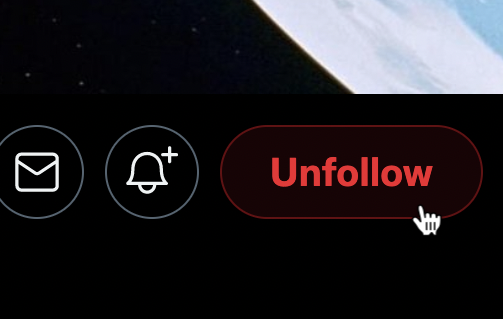tl;dr
A few changes can make a big impact on your time: disabling auto-play, disabling URL auto-completion, taking control of algorithmic recommendations, and reviewing notification settings.
From the firehose of notifications, feeds, and suggestions, modern technology often diverts our attention from what matters most.
Applications' default settings often work against us. Here are four small changes you can make to improve your time spent on devices:
1. Disable Autoplay

Autoplay can lead you into the black hole of content. Have you ever looked up a single video, and winded up watching a 30-minute fail compilation, or a 3-part documentary series?
WHY DO THIS?
- Disabling autoplay is common sense - it shifts control of our time from our device back to us.
HOW-TO:
- For YouTube desktop/mobile, see the GIF above. Sometimes the setting doesn't persist, so you can use these: Chrome plugin, Firefox plugin. The YouTube TV apps also have a toggle in their settings.
- For Netflix, change the setting here.
2. Disable URL Autocomplete
When I type "r" in a new browser window I see:

I had a bored habit of opening my browser, followed by hitting a key like 'r', and then hitting enter. I'm only two key presses away from visiting these common websites. This haphazard action often led to a half-hour spent browsing the website.
What keys do you naturally gravitate towards when you open a new tab, and what do they auto-complete to?
Beneath these website suggestions, Chrome shows the most popular searches by default. These may also lead to time sinks.
WHY CHANGE THIS?
- Your browser reinforces your browsing behavior, regardless of if it's good or bad.
- Typing out the full URL requires stronger intention to visit a time-sink website. This gives you more time to think about it and veto the decision.
HOW-TO
- Chrome doesn't seem to have a good solution. From the URL
chrome://settings/privacyyou can disable search suggestions. Otherwise you'll need to frequently clear your history or use incognito mode to stop the history-based suggestions. According to the dev team, "We don't intend to ever provide an option to disable autocompletion." (source). - In Firefox, visit Preferences (URL:
about:preferences). Under Privacy & Security, toggle off "Browsing history" address bar suggestions. Under Search, uncheck "Provide search suggestions". - This is less convenient for finding past websites. So, I store important or lengthy URLs as bookmarks. These stay in your search suggestions for easy access.
3. Take Control of Recommendations

Filter bubbles. Echo chambers. Feedback loops. There are many terms for the amplification effects AI has on our suggestions.
More personalization isn't always better. Whether you regret wasting the time or enjoyed it, the type of content you've shown interest in in the past will influence your future recommendations.
WHY CHANGE THIS?
- Your media feeds are both a combination of things that you value and things that you (or others like you) probably spent too much time on.
- By being mindful of your actions, you can take full advantage of the algorithms to work for you and optimize your time spent on devices.
SOLUTIONS:
- Follow only high-quality accounts, news sources, subreddits, etc. This shapes what you will spend your time on in the future. You're probably following 100's or 1000's of sources & people, many from years ago that you might not choose to follow again today.
- Be conscious of what you click on or "like". This is a positive signal to recommendation systems saying "show me more like this". Use liking wisely, as another tool to influence how you want to spend your future time.
- Try pausing your viewing history on YouTube. This causes recommendations to be based primarily off of your subscribed channels. I find this to be a better, more curated experience.
- Browse by chronologically sorted, instead of "recommended" sorting on websites. It lowers the quality bar, but it's a great way to find new stuff.
Limiting algorithmic recommendations can make it harder to branch out. Instead, get recommendations from a wider variety of sources: friends, forums, Google searching, articles.
4. Review Your Notifications
Notifications are the purest form of a distraction. They force you to notice them and often interrupt what you're doing.
Sometimes, notifications are crucial. Appointments, meetings, reminders, etc.
A vast majority of notifications, however, aren't essential:
- "John Smith and 3 others commented on a comment."
- "We've changed our Privacy Policy to comply with GDPR."
We're facing 365+ friends' birthday reminders and dozens of dying apps trying to eek out one more visit from you.
WHY CHANGE THIS?
- Aside from the interruption potential, the mess of notifications clutters your lock screen, inbox, and mind.
SOLUTIONS:
- Reserve push notifications for only important & urgent matters. This can be changed per-app in the notifications settings of iOS and Android.
- Review your notification preferences within apps. Most apps let you fine-tune what type of notifications you receive and how they're delivered. Make use of this to limit distractions while keeping the notifs you find useful.
- Unsubscribe from mailing lists, and set up filters for recurring emails. This is a constant battle, but the payoff is great when you achieve an uncluttered, focused inbox, a.k.a. "inbox zero".
The apps we use compete for our attention. If we're not deliberate in our choices, we will be guided by apps' default settings and our own bad habits.
Changing the default settings to benefit us takes a matter of seconds and can give us hours back of our life.
END
⌃ back to top
← home
